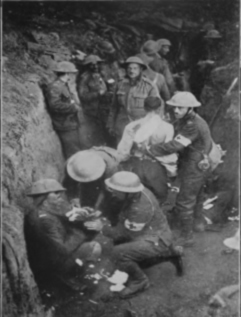We'd always assumed that this war was known as the Great War until WW2 came along at which point it was renamed as World War One or the First World War. But the term was first used in print in 1920 as the title of a book, 'The First World War' by Charles à Court Repington. He was using it to emphasize the global nature of the war rather than its sequential nature.
Different memorials give different years for the end of WW1. The Armistice came into force at 11am on 11 November 1918 and fighting ceased on the western front but hostilities continued elsewhere. The Treaty of Versailles, signed by Germany and some of the allied powers following the Paris Peace Conference, was not until 28 June 1919.
The war did not officially end in the UK until 31 August 1921, as explained at the Commonwealth War Graves Commission: "When the Termination of the Present War (Definition) Act 1918 was passed by Parliament, it gave discretion to His Majesty in Council to declare the date of the termination of the war. Consequently, war with each of the Central Powers ended close to the date of the ratification of the various peace treaties. Although a treaty with Turkey had yet to be ratified, it was decided that 31 August 1921 ‘should be treated as the date of the termination of the present War’. As the Imperial War Graves Commission (IWGC) was charged with responsibility for the graves of service personnel who died between the outbreak and end of the War, this meant that those casualties of the First World War who died after 31 August 1921 fell outside the remit of the Commission."
Note - it seems to be just a lucky poetic chance that the Armistice coincides with "the eleventh hour of the eleventh day of the eleventh month". Kaiser Wilhelm abdicated on November 9th, presumably not thinking "just in time for a poetically-timed Armistice".
For some signs of WW1 on buildings in London see Spitalfields Life.
2024: We've just come across the London World War 1 Memorial - looks like it could be a great resource.








Comments are provided by Facebook, please ensure you are signed in here to see them